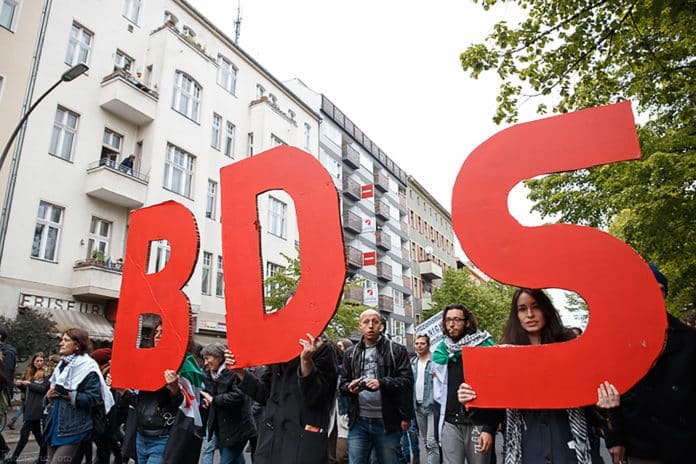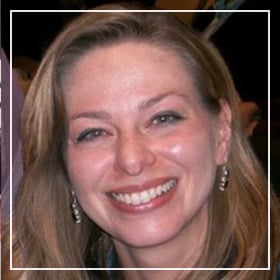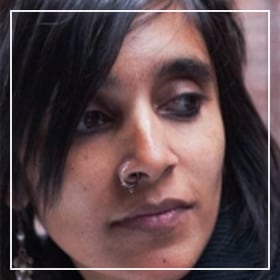The American Anthropological Association (AAA) is awaiting the results of a membership vote on a resolution to boycott Israeli academic institutions submitted in response to a solidarity call from Palestinians. Despite the AAA’s decision to hold the vote in the summer, there has been a robust exchange of views on the resolution. Much of it has happened on the association’s online “Communities” discussion site. What was once just a venue for circulating information about upcoming conferences became a public sphere for “citizens” of the AAA to partake in dialogue and critical debate. This should have been lauded by the AAA’s leadership as a sign of democracy in process. Instead, association leaders have engaged in acts of censorship that contradict their claims to fairness and neutrality. This is behavior unbecoming of an academic association, especially one that espouses a commitment to anti-racism and social justice, and the values of collaboration, dialogue, and transparency.
The AAA’s “Community Rules & Etiquette and Privacy Guidelines” state that the “AAA does not actively monitor the site for inappropriate postings and does not on its own undertake editorial control of postings. However, in the event that any inappropriate posting is brought to the attention of the AAA, we will take all appropriate action.”
This disclaimer is belied by the AAA’s actual practice. The discrepancy between guidelines and practice has been most glaring when it comes to the “Communities” site moderation of posts by supporters of the boycott resolution. Take for instance the July 10 post by Thomas Hansen (Stanford U) titled “YES, because the symbolic matters.” While not rejecting it outright, the site moderator asked Hansen to remove the name of Ed Liebow, outgoing Executive Director, from the post. Hansen’s original message referred to Liebow’s quoted statement in an article in Middle East Eye on June 14, about the AAA vote: “Our association has never undertaken such a boycott before. Even in the case of South Africa and the height of the anti-apartheid movement, our association raised concerns that are derived from our scholarship, but did not join any boycott.” Hansen quoted Liebow in the context of debunking an argument proffered by those who oppose the boycott that its supporters are “merely driven by some narcissistic desire for moral purity.” Hansen wrote:
“What is exactly the moral stance involved in celebrating neutrality, or impartiality, in the name of some professional ethos, one may ask? A commitment to a higher ‘scientific’ truth, and a cool professionalism that purports to see all sides and therefore have a higher truth claim than those moralistic hotheads advocating for one side only? Is that not the ultimate moral purism? A moral purism that among other things leads Ed Liebow to proudly defend that [the] AAA never took a stance on apartheid.”
After removing Liebow’s name from his post, Hansen wondered in an email to a member of Anthroboycott, “How can [Liebow] be free to speak, but we are not….?”
The AAA’s uneven application of free speech principles becomes even clearer in the contrasting responses to pro and anti-boycott speech on the “Communities” site. One comparison will suffice. As the period for voting on the resolution drew to a close, supporters of the boycott sought to share a round-up of arguments in its favor. On July 13, Jessica Winegar (Northwestern U) received an email from a site moderator asking her to remove or radically edit the part of her post that quoted a message from Dan Segal (Pitzer College). Segal’s message from April stated:
Decent people do not cross a picket line.
Decent people do not cross a picket line set up by victims of corporate exploitation.
Decent people do not cross a picket line set up by victims of state oppression.
Decent people honor rather than cross the Palestinian call for BDS.
The moderator noted that “the Community board has become extremely divisive and tumultuous” and that there had been “a recent uptick in personal attacks and inflammatory posts.” While recognizing that Segal’s post was originally approved, the moderator said: “I believe that characterizing all anti-bds [sic] proponents as indecent will only cause more turmoil.” Only after deleting Segal’s original message were Winegar’s post approved.
However, this concern for tone and language did not extend to characterizations of boycott supporters. A month earlier on June 12, the AAA Director of Communications and Public Affairs, Jeff Martin, edited the title of an anti-boycott post by Cynthia Saltzman (Rutgers U), replacing Saltzman’s “The Noose is Tightening” with “Disingenuous and Deluded”—a reference to supporters of the boycott. Apparently, such disparaging terms, even when used by an officer of the AAA, are acceptable when describing boycott supporters, while a plea for decency is too divisive!
Time and again, supporters of the boycott and their arguments have been called deluded, disingenuous, misguided, shallow, and antisemitic without having the speech of those slinging such slurs curtailed by the AAA.
Egregious as these examples are, they pale in comparison to a more deeply problematic instance of censorship from late June. On June 25, Sami Hermez (Northwestern U, Qatar) received a response from Jeff Martin informing him that his message was not posted because it was found to be “incendiary, with racist overtones, and not grounded in the anthropological scholarship consistent with the postings on our Community platform.”
Hermez’s post said:
If you’re arguing against the boycott and asking why we single out the Israeli state then you’re in good company #AnthroTwitter @AmericanAnthro @anthroboycott.
Below the text, Hermez included an image of a 1989 Christian Science Monitor article by Anne-Marie Kriek, a South African university lecturer, with the headline, “South Africa Shouldn’t be Singled Out,” and quoted Kriek’s defense of apartheid: “Contrary to popular belief, the whites did not take the country from the blacks. When the Dutch settled in the Cape in 1652, they found a barren, largely unpopulated land. Together with French and German settlers, they built a dynamic society.”
It is unclear why the AAA moderator determined that Hermez’s post was itself racist. Hermez had highlighted the parallels between South African and Zionist responses to anti-apartheid boycott movements. Was Hermez’s post deemed racist because it cited the virulent racism of 1989 South Africa? Or did the AAA moderator think it beyond the pale to compare Israel to South Africa as polities rooted in racial supremacy?
If it is the latter, the AAA leadership has not been paying attention. Kriek’s settler-colonial tropes about the home of the colonized being “a land without a people for a people without a land” and the colonizers’ magic in “making the desert bloom” are widely propagated Zionist slogans. Current Israeli Finance Minister, Bezalel Smotrich, declared in March 2023 that there is “no such thing as Palestinians because there’s no such thing as the Palestinian people.” Smotrich also has responsibilities in the Defense Ministry unit in charge of civilian affairs in Area C of the West Bank where Israel has full security and civilian control. The erasure of Palestinians is not limited to members of Israel’s current far-right government. The myth that Palestine was terra nullius and that Palestinians have no basis for claiming peoplehood are tracks on a Zionist broken record with a long history. Golda Meir’s statement in an interview published with The Sunday Times on June 15, 1969, that “there was no such thing as Palestinians” is just one iteration.
Across North America and Europe, right-wing and Zionist activists have been working hard to shut down critical discourse about Israel/Palestine and support for the Palestinian liberation struggle. The censorship and harassment are well documented by the European Legal Support Center in their recent report, by Palestine Legal, and by the United Nations and its rapporteurs.
It is shocking, and should be shocking, that a people’s mere existence is deemed an existential threat and that their fundamental right to free speech be so trammelled. And it is shocking, and we should be shocked that those running the AAA have jumped on the censorship bandwagon by hindering the free and honest exchange of ideas and information about Israel and Palestine. Censorship undermines the potential of a robustly inclusive association built on mutual respect. It is antithetical to the AAA’s own stated commitment to academic freedom and open scholarly debate.
Lori Allen and Ajantha Subramanian are both members of the Anthroboycott collective.






